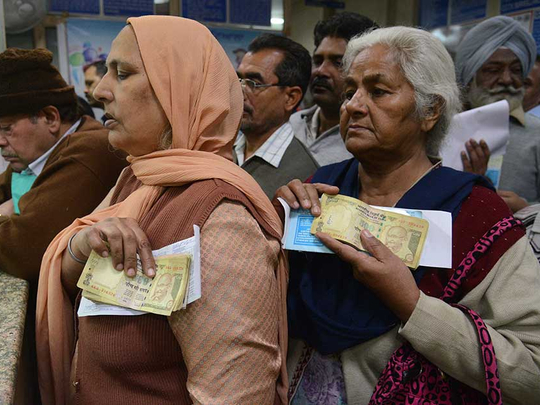
Kolkata: Hundreds of Bangladeshi and Nepalese who had come to Kolkata for medical treatment have been left penniless after the announcement of demonetisation of Rs500 and Rs1,000 bank notes on November 8.
The prospect of treatment and good health has now been replaced with the horror of being impecunious in a foreign country.
“I had reached Kolkata on 6 hoping to cure my daughter of her neurological problem. The treatment is expensive and I had to sell my land in Chittagong for the same. However, the money I received had exchanged is of no use and is now spending days trying to exchange them,” said Shaikh Asbal.
For Alam, who is accompanying her sister for a heart surgery is even more precarious as one of his Rs500 notes have been identified as fake by the bank from where he wanted to exchange the same. “I exchanged some money at the airport and later with an agent. While changing currency denominations one bank said that one of my Rs500 note is fake leading to further hassles as I am foreign national,” said a visibly disturbed Alam, who now complains of being harassed by local police officials.
Such stories are not uncommon in Kolkata as according to government estimates that nearly 300 Bangladeshis patients enter India every day, and of them 90 per cent come to Kolkata for treatment, due to proximity and ease of language makes it the preferred destination.
“I had come here for treatment, but now I do not even have money to buy food. No one is helping me to exchange money and I am being looted,” said Azmal Khar, a resident of Dhaka. Khar apparently paid a local guy Rs5,000 for exchange of Rs4m000. “The minimum commission sought is 20 per cent and the moment one realises that I am helpless, I am being fleeced,” Khar added.
Traders from Bangladesh and Nepal, who trade with India is also stuck as many posses Indian currency and is not able to exchange. “I come to Kolkata to buy various things for my departmental store in Kathmandu. Since most of the transactions are in cash as no one will accept a cheque from a foreign bank, I have accumulated over Rs. 1 million in Indian currency over a period of time, as I used to transact every month. Hope these are not treated as black money by government officials,” said Suraj Bahadur, over phone.
“A large no of people in countries like Bangladesh, Nepal and Bhutan have Indian currencies in their possession due to their ongoing trade relation. Such money is certainly not black money and these individuals are certainly not liable to pay taxes in India as they are not Indian citizens. However, the government has not come up with a clear road map as to how to handle these cases without harassing the individual,” said Pratik Basu, a former banker.
The most predominant sentiment prevailing in the city is that though the objective of demonetisation move is good, the government has failed in implementing it. “Why is the government trying to ration my own money? Who is it to say how much I will withdraw from my account. It is a violation of my constitutional right,” said Sanjay Ghosal, a chartered accountant.












